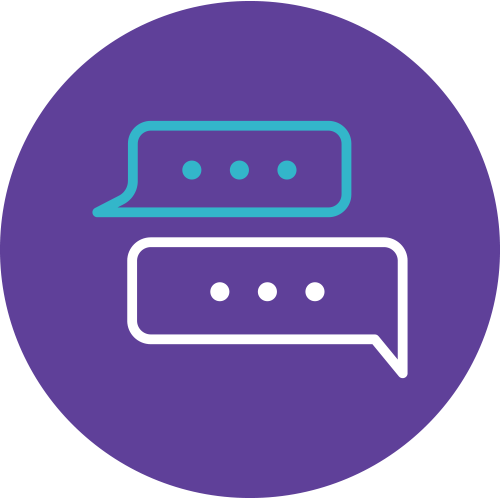Unlocking Your Potential with Cisco Certified Network Associate (CCNA)
Are you ready to embark on an exciting journey into the world of networking? Look no further! Our ‘CCNA (F) Cisco Certified Network Associate (Fast Track)’ course is your gateway to becoming a Cisco Certified Network Associate (CCNA) and unlocking a world of opportunities.
What is Cisco Certified Network Associate (CCNA)?
Cisco Certified Network Associate, or CCNA, is not just another certification; it’s your key to a thriving career in the dynamic field of networking. Whether you’re a seasoned IT pro looking to enhance your skills or a newcomer eager to dive into the digital realm, CCNA is your stepping stone. Our Fast Track program offers a rapid and comprehensive route to mastering the critical terms and concepts in project management, configuring and verifying routing protocols, understanding IP services, and strengthening network security fundamentals.
Why Choose Our Fast Track CCNA Course?
In the ever-evolving tech landscape, staying ahead of the curve is paramount. Our Fast Track CCNA program is designed to provide you with interactive lectures, practical exercises, and hands-on experience. With expert instructors guiding you through each module, you’ll not only learn the ropes but also gain the confidence to excel in the world of networking. So, if you’re seeking a transformative learning experience that prepares you to excel in networking, our ‘CCNA (F) Cisco Certified Network Associate (Fast Track)’ course is your roadmap to success. Enroll now and unlock your potential today!
Course Details
Course Code: CCNA; Instructor-led
Audience
The CAPM® certification offers recognition to Practitioners, SMEs or Team Members who wish to demonstrate their project management knowledge and skills.
This certification denotes that the individual possesses the knowledge in the principles and terminology of A Guide to the Project Management Body of Knowledge (PMBOK® Guide7th Edition), the standard of project management’s generally recognized good practices.
Individuals who contribute specialized skills to a project team can benefit from this certification by allowing them to align their work with that of project managers. The knowledge a practitioner gains from earning the CAPM® certification can be applied to on-the-job experiences which help develop growing levels of competence in the practice of project management.
Prerequisites
- Basic data modeling, user experience design, requirements analysis, and process analysis skills.
- A personal growth mindset and are comfortable using technology to solve business problems.
- An understanding of the operational need and have a vision of the desired outcome. They approach problems with phased and iterative strategies.
.
Methodology
This program will be conducted with interactive lectures, PowerPoint presentation, discussion and practical exercise.
Course Objectives
Upon completion of this program, participants should be able to:
- Master the critical terms and concepts in project management
- Apply the key concepts to your work in project management
- Evaluate your own strengths and weaknesses to best focus your efforts
- Determine those areas that are important to study versus those that are ‘nice to know’
- Avoid common pitfalls associated with taking the exam
Outlines
Module 1: Networking Fundamentals
- Explain the role and function of network components including Routers, L2 and L3 Switches, Next-generation firewalls and IPS, Access Points, WLC Controllers, Endpoints and Servers
- Describe characteristics of network topology architectures 2 tier, 3 tier, Spine Leaf, Wan, Small Office/Home Office (SOHO) and cloud
- Compare physical interface and cabling types Single-Mode Fiber, Multi-Mode Fiber and Copper, Connections (Ethernet shared Media and Point to Point) and POE
- Identify interface and cable issues (collisions, errors, mismatch duplex, and/or speed)
- Compare TCP to UDP
- Configure and verify IPv4 addressing and subnetting
- Describe the need for private IPv4 addressing
- Configure and verify IPv6 addressing and prefix
- Compare IPv6 address types like Global Unicast, Unique Local, Link Local, Anycast and Multicast
- Verify IP parameters for Client OS (Windows, Mac OS, Linux)
- Describe wireless principles Including Wi-Fi Channels, SSID, RF and Encryption
- Explain virtualization fundamentals (virtual machines)
- Describe switching concepts like Mac Learning and Aging, Frame Switching and Mac Address Table
Module 2: EIP Connectivity
- How Router will inter Interpret the components of routing table including Routing Protocol, Prefix, Network Mask, Next Hop, Administrative Distance and Metric
- How Router Determine how a router makes a forwarding decision by default on the Basis of Administrative Distance and Routing Protocol Metric
- Configure and verify IPv4 and IPv6 static routing For Network Route and Default Route
- Configure and verify single area OSPFv2 with Neighbor Adjacencies, Point to Point, DR and BDR and Router ID Configuration
Module 3: IP Services
- Configure and verify inside source NAT using static and pools
- Configure and verify NTP operating in a client and server mode
- Explain the role of DHCP and DNS within the network
- Explain the function of SNMP in network operations
- Describe the use of syslog features including facilities and levels
- Configure and verify DHCP client and relay
- Explain the forwarding per-hop behavior (PHB) for QoS such as classification, marking, queuing, congestion, policing, shaping
- Configure network devices for remote access using SSH
- Describe the capabilities and function of TFTP/FTP in the network
Module 4: Security Fundamentals
- Define key security concepts (threats, vulnerabilities, exploits, and mitigation techniques)
- Describe security program elements (user awareness, training, and physical access control)
- Configure device access control using local passwords
- Describe security password policies elements, such as management, complexity, and password alternatives (multifactor authentication, certificates, and biometrics)
- Describe remote access and site-to-site VPNs
- Configure and verify access control lists
- Configure Layer 2 security features (DHCP snooping, dynamic ARP inspection, and port security)
- Differentiate authentication, authorization, and accounting concepts
- Describe wireless security protocols (WPA, WPA2, and WPA3)
- Configure WLAN using WPA2 PSK using the GUI
Module 5: Network Access
- Configure and verify VLANs (normal range) spanning multiple switches
- Configure and verify Interswitch connectivity
- Configure and verify Layer 2 discovery protocols (Cisco Discovery Protocol and LLDP)
- Configure and verify (Layer 2/Layer 3) EtherChannel (LACP)
- Describe the need for and basic operations of Rapid PVST+ Spanning Tree Protocol and identify basic operations
- Compare Cisco Wireless Architectures and AP modes
- Describe physical infrastructure connections of WLAN components (AP, WLC, access/trunk ports, and LAG)
- Describe AP and WLC management access connections (Telnet, SSH, HTTP, HTTPS, console, and TACACS+/RADIUS)
- Configure the components of a wireless LAN access for client connectivity using GUI only such as WLAN creation, security settings, QoS profiles, and advanced WLAN settings
Module 6: Automation and Programmability
- Explain how automation impacts network management
- Compare traditional networks with controller-based networking
- Describe controller-based and software defined architectures (overlay, underlay, and fabric)
- Compare traditional campus device management with Cisco DNA Center enabled device management
- Describe characteristics of REST-based APIs (CRUD, HTTP verbs, and data encoding)
- Recognize the capabilities of configuration management mechanisms Puppet, Chef, and Ansible
- Interpret JSON encoded data










